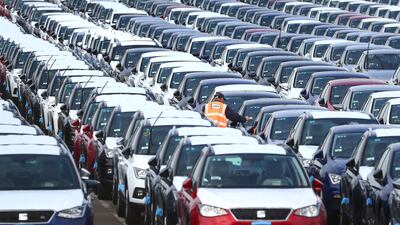The UK’s car industry suffered its second weakest May in three decades as sales dropped by more than a fifth year-on-year.
The Society of Motor Manufacturers and Traders (SMMT) said car sales were down 20.6 per cent compared with the same month in 2021.
The SMMT attributed the decline to a shortage of components reducing availability “despite demand”.
Figures showed that sales in the UK fell to 124,394 last month, the second lowest number of new cars registered in May since 1992.
Only May 2020 – when the UK was under a coronavirus lockdown – was worse for the industry.
Battery electric vehicles uptake jumped nearly 18 per cent, making up one in eight new cars on the road.
Registration of pure electric cars bucked the overall trend last month, with a 17.7 per cent year-on-year increase.
Electrified vehicles such as pure electrics, plug-in hybrids and hybrids accounted for three out of 10 new cars in May.
SMMT chief executive Mike Hawes said: "In yet another challenging month for the new car market, the industry continues to battle continuing global parts shortages, with growing battery electric vehicle uptake one of the few bright spots."
British new car sales this year will likely be lower than previously thought as the cost-of-living squeeze in Britain and persisting chip shortages affect the market, the SMMT said.
Ian Plummer, commercial director at Auto Trader, said: “Today’s weak new car figures underline the lingering challenges for carmakers, as the war in Ukraine adds to the headwinds of a post-Covid shortage of semiconductors, and lockdowns in China.
“Even though the microchip shortage is easing a little, manufacturers are struggling to source critical components like wiring looms, which are a major Ukrainian export and hard to replace."


